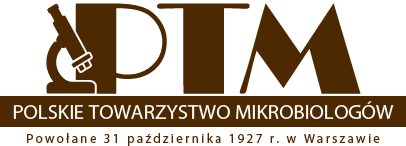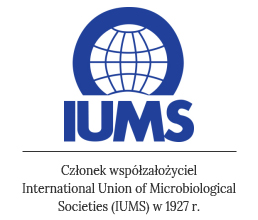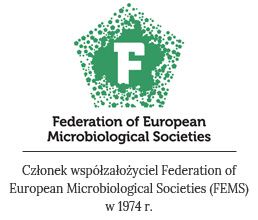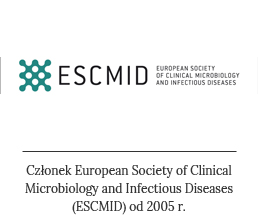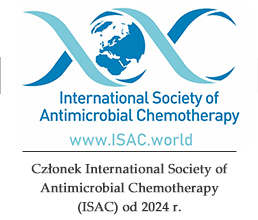7 grudnia 2021
„”ISPPD is the premium forum to discuss the progress and recent advancements in pneumococci and pneumococcal diseases and is the place where you can exchange knowledge, experiences and ideas.
(więcej…)
„”ISPPD is the premium forum to discuss the progress and recent advancements in pneumococci and pneumococcal diseases and is the place where you can exchange knowledge, experiences and ideas.
(więcej…)„FEMS Conference on Microbiology – Grants FEMS and the Serbian Society for Microbiology (SSM) are inviting all Early Career Scientists to apply for a grant or an award for the upcoming FEMS Conference on Microbiology, taking place from 30 June-2 July 2022 in Belgrade, Serbia!If you are not an Early Career Scientist, please forward this message to your colleagues and peers who might benefit from these opportunities!
(więcej…)
| „ECCMID 2022 Art Gallery – Submit your creative work!Following the success of ECCMID 2021, ESCMID is pleased to host the ECCMID art gallery once again for ECCMID 2022! Visit the website and submit your work, the best pieces will be awarded with free registration to ECCMID 2022, as well as being featured in an onsite exhibition.› Read more ESCMID CAREer Grant 2022The call to apply to the ESCMID CAREer Grant 2022 is now open! For the complete funding scheme, eligibility criteria and the application procedure, please visit the official ESCMID CAREer Grant webpage. The deadline to apply is 10 January 2022.› Read more |
| Public Consultation Phase open for ESCMID Guidelines“ESCMID guidelines on testing for SARS-CoV-2 in asymptomatic individuals to prevent transmission in the healthcare setting” is undergoing public consultation. Check here to participate. The deadline to provide feedback and comments is 31 December 2021.› Read more Non-biomedical factors affecting antibiotic use in the community. This systematic review explores the multifaceted non-biomedical factors influencing healthcare consumers’ non-prescription antibiotic use and irresponsible antibiotic prescriptions that are prevalent across the world. The results will help to inform future interventions to improve antibiotic use.” |
| „The continued development of DNA sequencing technologies is providing exciting new capabilities to characterize complex microbial communities in various habitats. This webinar explores some of the new developments and challenges in microbiome research methods and takes a critical look at what we can learn about the inhabitants of diverse microbiomes and their possible functions. Key topics include the concerns with reproducibility and controls in microbiome research, the improvements in Oxford Nanopore long-read sequencing technology, and the role of the microbial rare biosphere.Register Now |
